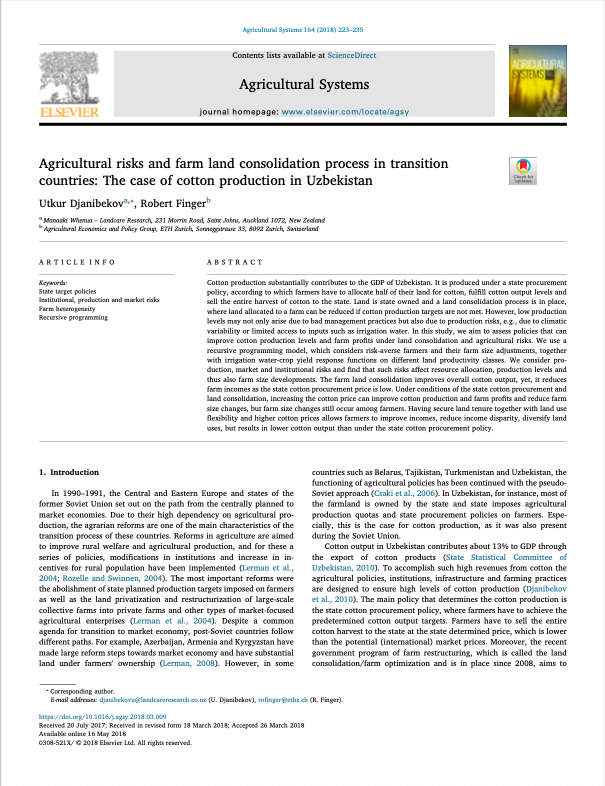Agricultural risks and farm land consolidation process in transition countries: The case of cotton production in Uzbekistan
Cotton production substantially contributes to the GDP of Uzbekistan. It is produced under a state procurement policy, according to which farmers have to allocate half of their land for cotton, fulfill cotton output levels and sell the entire harvest of cotton to the state. Land is state owned and a land consolidation process is in place, where land allocated to a farm can be reduced if cotton production targets are not met.


